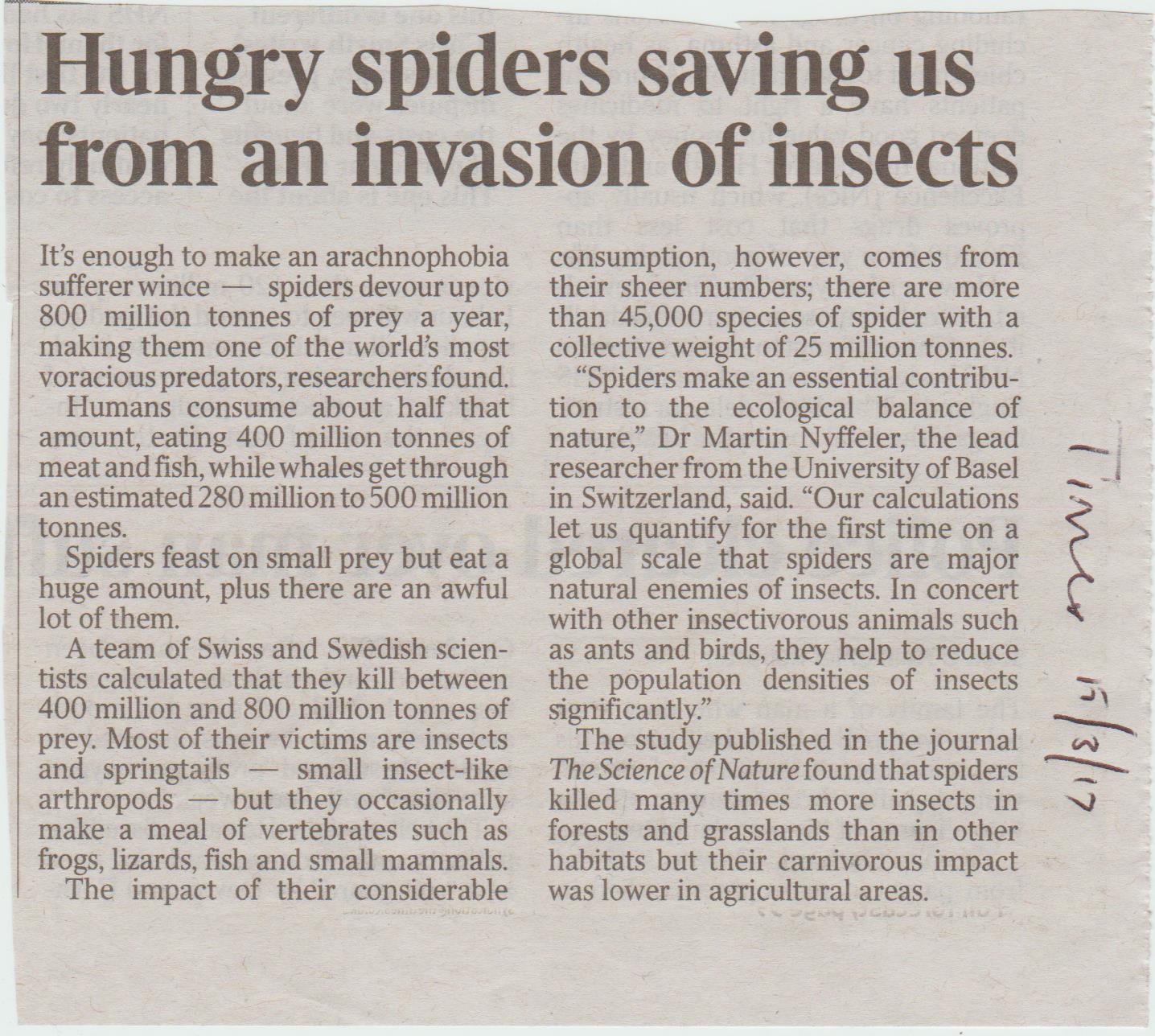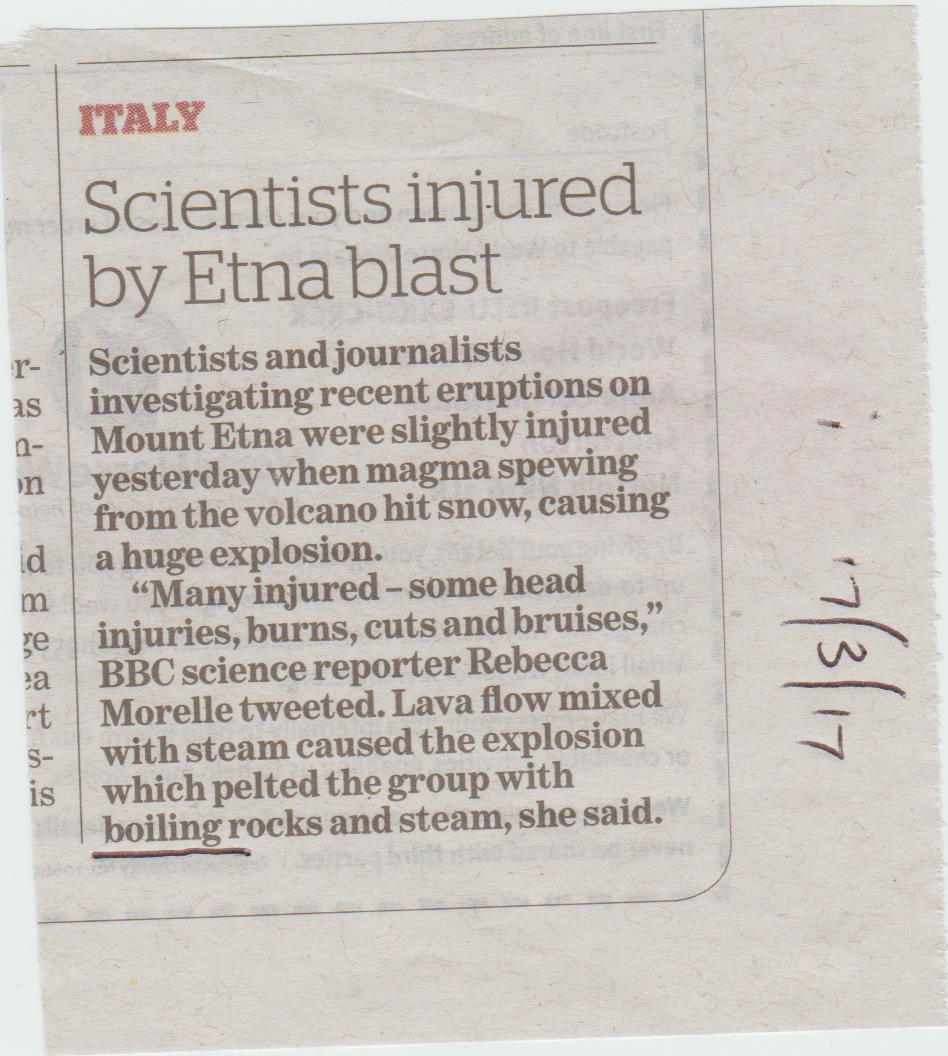
The Times, March 15, 2017
Another unnecessary and dreary attempt to dress up a reasonable intro. Just knock off the words up to the dash. In any case, someone who fears spiders is an arachnophobe, not the clumsy ‘arachnophobia sufferer’. ‘Predator’ and ‘prey’ are repetitive, and I think ‘devouring’ and ‘voracious’ are too similar to use in the same sentence. I would use ‘tons’ rather than ‘tonnes’ since there is almost no difference in weight.
This is how I would tackle it:
Spiders are among the world’s most voracious predators, feasting on up to 800 million tons of victims a year, scientists have found.
The slaughter has a major impact on insect populations, they believe.
Although individual spiders eat such tiny creatures, there are a huge number of them – 45,000 species with a collective weight of 25 million tons. A Swiss and Swedish team has calculated that their prey adds up to between 400 million and 800 million tons a year.
By comparison, humans consume about 400 million tons of meat and fish, and whales get through an estimated 280 million to 500 million tons.
Spiders mainly eat insects and springtails, which are small insect-like arthropods. Larger species occasionally dine on vertebrates such as frogs, lizards, fish and small mammals.
Lead researcher Dr Martin Nyffeler, from the University of Basel, [I think Times readers should be expected to know that Basel is in Switzerland, not Sweden] said: ‘Spiders make an essential contribution to the balance of nature. [Then run on the rest.]

